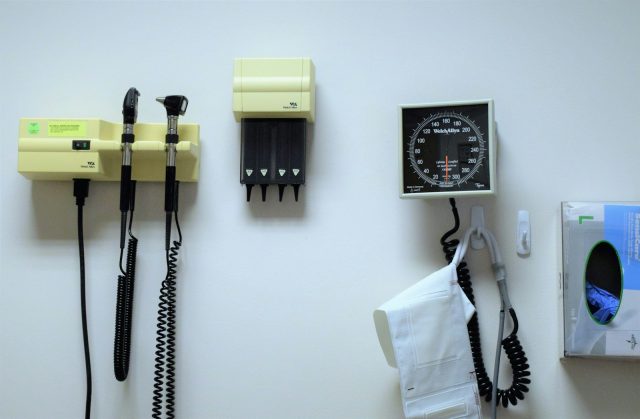
Handling treatment and daily life at the same time can feel overwhelming. Many people face this challenge, and studies show that outpatient care can work just as well as inpatient rehab for recovery.
This article will offer simple steps to help you balance therapy, work, family, and self-care. You will find real tips from places like NOLA Detox and Time Wellness Tennessee. Keep reading to discover ways you can take charge while keeping your routine steady.
Understanding Outpatient Treatment
Outpatient treatment lets me focus on my recovery while still living at home, keeping up with daily routines. These programs give structure and support, so I can manage both my mental health care and the rest of my life—work, school, family… you name it. Choosing an outpatient program also means I can access professional guidance and therapy sessions while maintaining independence.
Key features of outpatient programs
I need to juggle my daily tasks with my outpatient treatment. It’s not easy, but learning about the key features of these programs helps. Here are some things I found out:
- These programs require 9 to 12 hours a week; for example, NOLA Detox offers four sessions that last three hours each.
- They make a plan just for me. This way, the treatment fits what I need.
- Doctors there help with medication if needed. It’s called Medication-Assisted Treatment (MAT).
- There’s group therapy. I get to meet others going through similar stuff.
- They teach us skills to cope better and hold workshops too.
- Classes can be during the day or evening, which is great for my schedule.
- They check if I’m staying on track with drug tests following SAMHSA guidelines.
Each point makes it clearer how this treatment works with my daily life, not against it.
Benefits of outpatient care for maintaining daily life
Outpatient treatment lets me keep my job and go to school. Its flexible schedule fits around my family time.
- Key features of outpatient programs make it easy for me to blend therapy with my daily tasks.
- Flexible scheduling means I don’t have to quit my job or take a break from school.
- Lower costs are a big plus, since I save money by not paying for staying overnight.
- Staying at home means I get support from family while I recover.
- Applying what I learn in treatment helps me handle real-life situations better.
- I can stay at work or with my family without taking long breaks.
- Community resources give me extra help outside my treatment sessions.
- A balance between work and life is easier to maintain with outpatient care.
- Non-residential program means I sleep in my own bed each night, which feels great.
- Support from peers who understand what I’m going through boosts my recovery journey.
Time Management Strategies
Managing my time means I need to organize treatment, work, and personal life without feeling overwhelmed. Simple tools like planners, calendar apps, or reminders help me keep track of appointments and daily tasks—with less stress.
Creating a structured daily schedule
I need a plan to balance outpatient treatment and life. A daily planner or digital calendar keeps me organized.
- First, I pick a planner that’s easy for me to use. It can be a notebook or an app on my phone.
- I write down my work or school hours. This helps me see when I’m free.
- Next, I add my therapy sessions at NOLA Detox. They offer daytime and evening options, so I choose what fits best.
- I commit to 9-12 hours per week for treatment. That means four three-hour sessions every week.
- Planning ahead is crucial. I make sure not to schedule anything during my therapy times.
- Self-care activities like sleeping and exercising go into my planner too.
- Staying consistent with this routine is important for recovery and stress reduction.
Next up is how I manage goals while keeping this schedule in mind.
Setting realistic goals for treatment and personal life
Balancing work, therapy, and family is hard. I make goals that are possible to reach. This helps me stay on track without getting too stressed.
- I list what needs to happen each week, like going to therapy sessions and meeting work deadlines.
- Goals are small steps for me, not giant leaps. This means choosing tasks I can actually finish in a day or a week.
- Sharing tasks at home helps too. My partner does groceries when I have therapy.
- I talk to my boss about flexible hours on treatment days.
- Exercise and hobbies are in my schedule. They keep my mind and body strong.
- Each night, I check what I did that day. It feels good to see progress.
- Changes come up all the time. So, every Sunday, I adjust my plans for the next week.
- Breaks are important; they stop burnout. Every two hours, I take a short walk or just breathe for five minutes.
- Asking friends for help is okay when things get too much.
- Rewards matter when reaching small goals; maybe a movie night after a tough week.
Goals match my life’s pace now, blending recovery with everything else smoothly.
Communicating Effectively
I talk with my boss and teachers about my treatment schedule, so we all stay on the same page—this helps reduce stress at work or school. I keep honest conversations going with friends and family, because their support is key for my wellness and routine.
Talking to your employer or school
I speak with my boss or school staff as soon as I start outpatient treatment. Flexible work hours, remote assignments, and lighter workloads help me keep up with both worklife balance and health needs.
Employee Assistance Programs at many companies offer support services and let me request accommodations like extra break times or private spaces for appointments.
Clear communication is key. I give proper documentation from healthcare providers if needed. Many employers need written notice to adjust schedules or approve leave for medical care under federal laws like FMLA in the United States.
I share only what is required, keeping details confidential when possible. This helps protect my privacy while maintaining professionalism at all times.
Keeping open communication with loved ones
After discussing needs with my boss or teacher, I focus on clear communication at home. Regular check-ins with family and friends keep support strong. I tell loved ones about my treatment schedule to avoid mix-ups.
Sharing wins and struggles builds understanding and trust.
Family therapy sessions help us set goals together. Sometimes, my parents or partner give rides to appointments or help with the kids; that makes daily life easier. Support groups like Alcoholics Anonymous offer extra ways to connect during recovery.
Open dialogue keeps empathy high and relationships healthy as I work on healing.
Prioritizing Self-Care
I set time aside each day for myself—simple things help most, like taking a walk or reading a favorite book. Mindfulness tools and steady routines keep my stress low, so I feel ready to handle daily events and focus on healing.
Maintaining mental and physical well-being
Taking care of my mind and body is essential. Programs such as NOLA Detox highlight the significance of self-care during recovery.
- Ensuring ample sleep every night aids in my body and mind’s recuperation.
- Consuming balanced meals provides the energy required for daily activities.
- I involve myself in exercises like walking, biking, or yoga to maintain fitness.
- I practice meditation and mindfulness to pacify my thoughts.
- I engage in activities like reading or music for alleviating stress.
- Establishing a routine for these self-care practices keeps me consistent.
- Conversing with family and friends offers support during challenging times.
- Participating in support groups ties me with individuals who empathize with my journey.
- Consulting a therapist grants professional advice on this path.
- Ensuring to take short pauses throughout the day helps avoid exhaustion.
This method makes certain that I’m combining treatment with a wholesome lifestyle, making recovery steady and long-lasting.
Building healthy habits for recovery
I learned that outpatient programs stress daily routines. They also teach coping skills as part of the treatment plan.
- I make sure to wake up and go to bed at the same time every day. This helps me keep a steady routine.
- Eating healthy meals at regular intervals is something I do to maintain my physical health.
- Daily exercise, even a short walk, improves my mood and energy levels.
- Limiting time on screens before bed helps me get better sleep.
- Setting small, achievable goals keeps me motivated and focused on recovery.
- I avoid places and situations that might trigger old habits.
- Writing in a journal allows me to understand my thoughts and feelings more clearly.
- Attending workshops teaches me new ways to cope with stress without falling back on old habits.
- I regularly check in with my support group; sharing experiences with them makes me feel less alone.
- Celebrating my milestones reminds me of the progress I’ve made.
Next, let’s talk about creating a supportive environment around us.
Building a Support System
I reach out to my friends, family, and therapy group when I need strength or advice—it makes a big difference. If I feel stuck, I talk with my counselor or join a local support meetup for extra help.
Leaning on family, friends, and support groups
Leaning on my family, friends, and support groups makes a big difference in my life. They help me manage daily tasks and give me emotional support.
- My family takes turns helping with chores and errands when I have treatment sessions. This teamwork prevents me from feeling overwhelmed.
- Friends often check in with texts or calls, offering words of encouragement. Their support boosts my morale on tough days.
- I attend a group therapy session once a week at NOLA Detox’s Intensive Outpatient Program (IOP). Meeting people who face similar challenges helps me feel less alone.
- After finishing IOP, my loved ones join some of my therapy meetings. It strengthens our understanding and support for each other.
- A strong network at home and in the community signals that outpatient treatment is a good fit for me. Knowing this gives me confidence in my recovery journey.
- Close friends provide emotional backup, reducing feelings of isolation. Just knowing they are there for me makes a big difference.
- Support groups offer not just friendship but also accountability. They motivate me to stay committed to recovery.
- Engaging with the community teaches me practical ways to apply coping strategies outside of therapy settings.
Now, managing time effectively becomes crucial as I balance outpatient treatment with everyday life.
Utilizing professional resources
Therapists, case managers, and support group leaders give real help. At NOLA Detox, expert staff manage medications and provide therapy for recovery. I can also get referrals for ongoing health care after intensive outpatient programs there.
Time Wellness Tennessee offers therapies like Cognitive Behavioral Therapy (CBT), Dialectical Behavior Therapy (DBT), Biofeedback, and Red Light Therapy at 1635 Chestnut Street Chattanooga or by calling 423-413-6195.
Professionals help me set goals and track progress in recovery plans. They guide my mental health treatment and handle issues like co-occurring disorders with personalized counseling sessions.
In Delaware, Dover Behavioral Health System and Georgetown Behavioral Health offer behavioral health services; I can call 302-746-2992 to talk about my needs with them directly. Using these resources helps keep my treatment strong day by day while balancing regular life tasks.
Conclusion
Balancing outpatient treatment with everyday life takes planning and honesty. I stick to my daily schedule, set small goals, and always stay in touch with my support group. Simple self-care habits keep me steady through work and therapy.
Programs like NOLA Detox or Time Wellness Tennessee help by offering flexible sessions such as four three-hour meetings each week. With the right tools—like clear goals, a strong support system, and open talks at work—I know recovery fits into real life.










